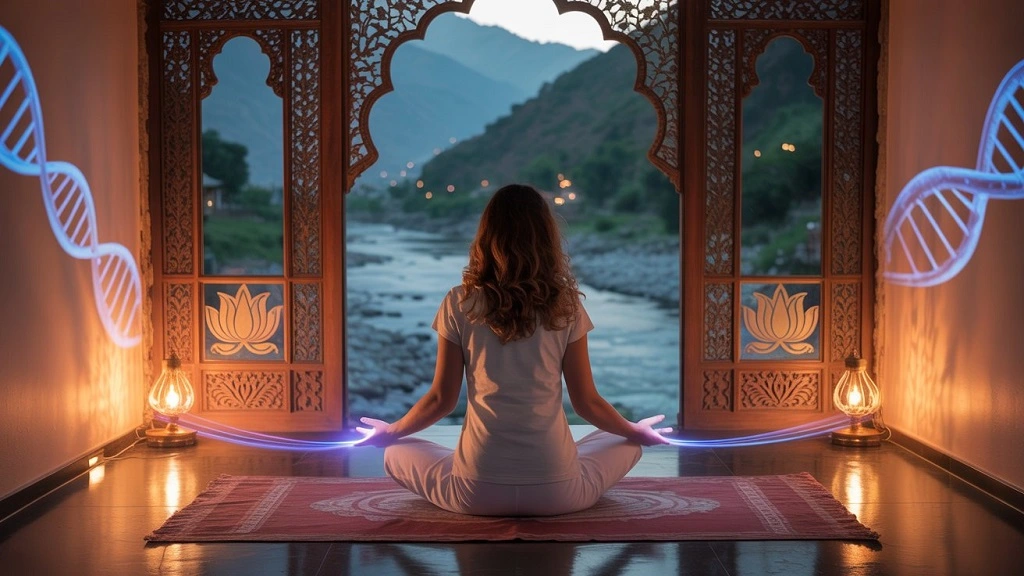
What is Alternative Therapy/Alternative Healing and How Does It Work?
This article is for information only. It’s not medical advice. Always check with a healthcare provider before trying alternative therapies.
Introduction
science-backed way to feel better—without the side effects. More people are choosing holistic therapies to tackle issues like anxiety, chronic pain, or even diabetes. They want solutions that work with their body’s natural systems, not against them.
Think
Ayurveda’s personalized diets, reiki’s calming energy, or yoga’s stress-busting poses. I remember my first meditation session: I was skeptical but left feeling lighter. You can have that moment too.
Takeaway: Alternative therapies are a natural path to better health. This post shows you how.
Understanding Alternative Healing
up.
Alternative vs. Complementary Therapies
Not sure about the terms? Here’s the breakdown:
- Alternative therapies replace conventional medicine. For instance, using naturopathy
instead of drugs for
diabetes. - Complementary therapies work alongside standard treatments, like doing yoga with
physical therapy. - Key Fact: About 38% of U.S. adults use these therapies HX therapies, per NCCIH.
Why People Choose Natural Therapies
Others want to prevent health issues before they start. Holistic health approaches offer that control.
| Type | Goal | Example | Evidence |
|---|---|---|---|
| Conventional | Treat symptoms | Painkillers | Strong (FDA-approved) |
| Complementary | Support treatment | Meditation with therapy | Good, growing |
| Alternative | Fix root causes | Naturopathy | Varies, some strong |
Takeaway: Alternative therapies focus on natural, whole-body healing and are gaining
popularity for their personal touch.
How Natural Therapies Heal You
- Ayurveda: Balances your body’s energies (doshas) with diet, herbs, and lifestyle. A 2019 study found it helps arthritis pain.
- Naturopathy: Uses natural remedies like turmeric, which fights inflammation, per studies.
- Reiki: Promotes relaxation through energy transfer. A 2022 study showed it reduces anxiety in pain patients.
- Kundalini Yoga: Chanting and movement calm the nervous system via the vagus nerve, per yoga research.
- Sound Healing: Uses vibrations to relax you. Early studies suggest emotional benefits.
- Marma Therapy: Targets energy points in Ayurveda, similar to acupuncture, for pain relief.
Energy Healing: What’s It About?
| Therapy | How It Works | Main Benefit |
|---|---|---|
| Reiki | Transfers energy | Less stress |
| Ayurveda | Balances doshas | Overall health |
| Reflexology | Stimulates nerves | Pain relief |
| Yoga | Breath and movement | Stress relief |
Fix Pain, Stress, and More with Holistic Therapies
They’re gentler than drugs, targeting root causes for lasting results. Here’s what works.
Best Alternative Therapies for Chronic Pain Relief
and Marma therapy also help by stimulating nerves and energy points.
Natural Remedies for Anxiety and Depression
sessions calm the mind, and kundalini yoga’s chanting soothes nerves by stimulating the vagus nerve, a lesser-known trick from yoga journals.
Holistic Treatments for Autoimmune Diseases
balance, but avoid risky herbs like Thunder God vine without medical advice.
Alternative Therapies for Insomnia and Sleep Disorders
Meditation and reflexology improve sleep quality. A 2013 study showed acupressure helped teens sleep better.
Alternative Therapies for PTSD and Trauma Recovery
Managing Diabetes and Migraines Naturally
Takeaway: Holistic therapies offer real, science-backed relief for your toughest health challenges.
Take Charge with Natural Therapies
How to Begin Safely
- Research: Check trusted sites like NCCIH for solid info on wellness therapies.
- Find Experts: Look for certified practitioners through groups like NCCAOM.
- Start Small: Try meditation apps like Calm or simple Ayurvedic food recipes, like ginger tea.
- Talk to Your Doctor: Make sure therapies don’t clash with your meds.
- Personal Tip: I started with a five-minute meditation app session. It was a game-changer.
Finding a Holistic Wellness Center
offer virtual reiki healing sessions or meditation classes, making it easier than ever.
| Step | What to Do | Where to Look |
|---|---|---|
| Research | Read studies | NCCIH, PubMed |
| Verify | Check certifications | NCCAOM, reflexology groups |
| Try | Use apps or classes | Calm, local studios |
Takeaway: Start your natural therapy journey with these clear, safe steps.
FAQ: Straight Answers to Your Questions
Q.1 What’s the difference between alternative, complementary, and conventional medicine?
Q.2 Are alternative therapies safe for everyone?
Q.3 Can alternative therapies work with regular treatments?
Q.4 Why do people pick alternative or holistic therapies?
Q.5 What’s better about holistic health care?
Q.6 How are natural therapies different from drugs?
Conclusion
insomnia,and more. They’re not just old traditions—science backs their power. From Sarah’s fibromyalgia relief with
reflexology to John’s PTSD relief with sound healing, real people are finding results. You can too.
Sign up for our 21-day course on holistic therapies to learn more and start your journey. Dr. Deepak Gupta’s expert-led course will guide you through natural therapies with practical tips and personalized advice. Join
now.